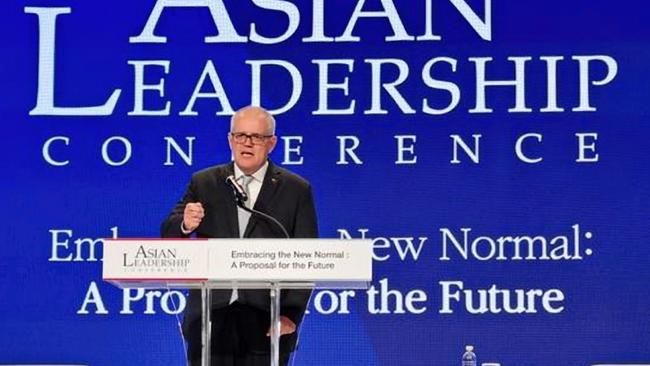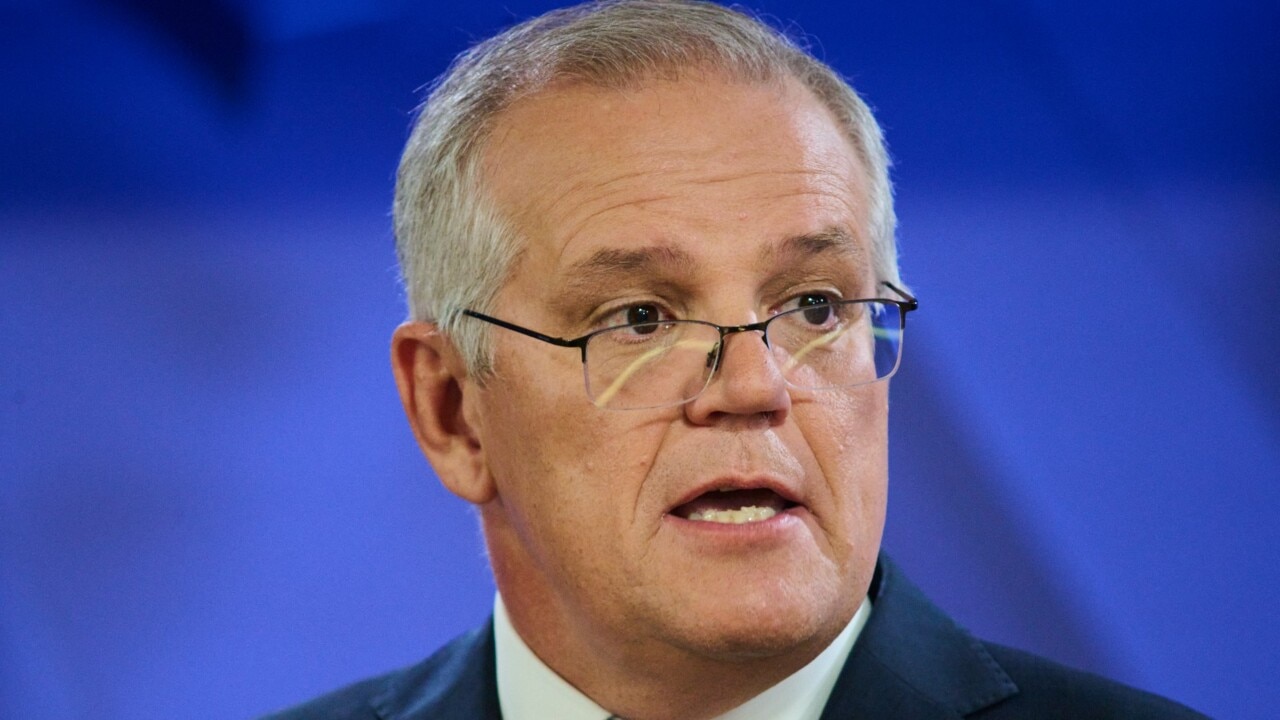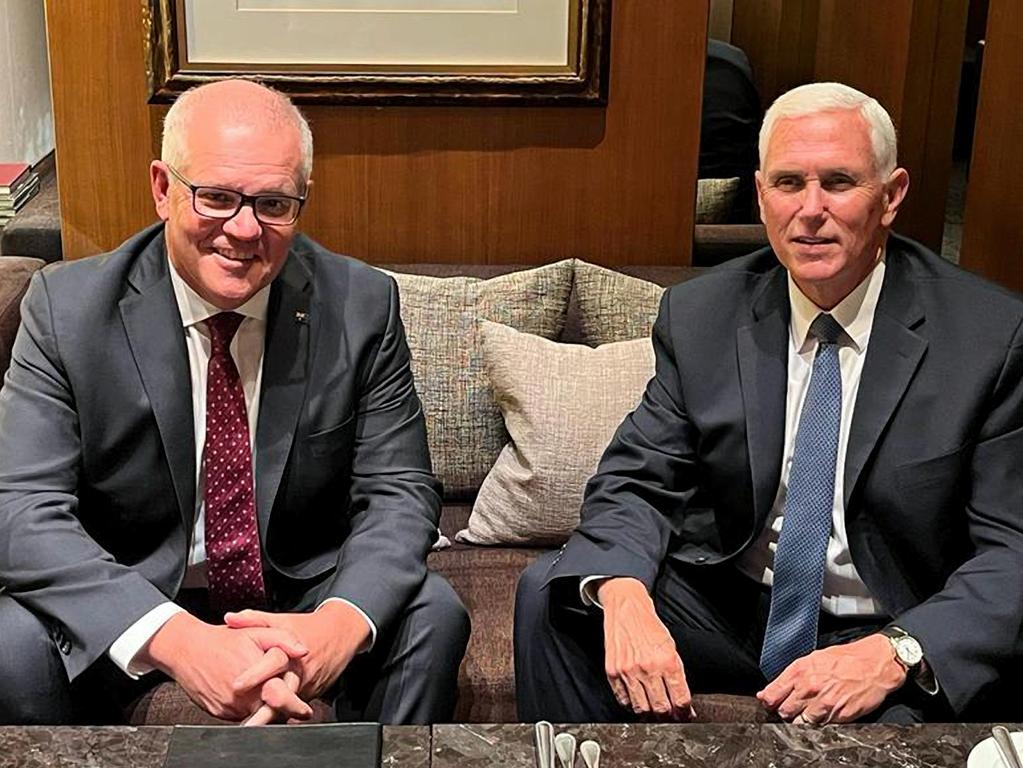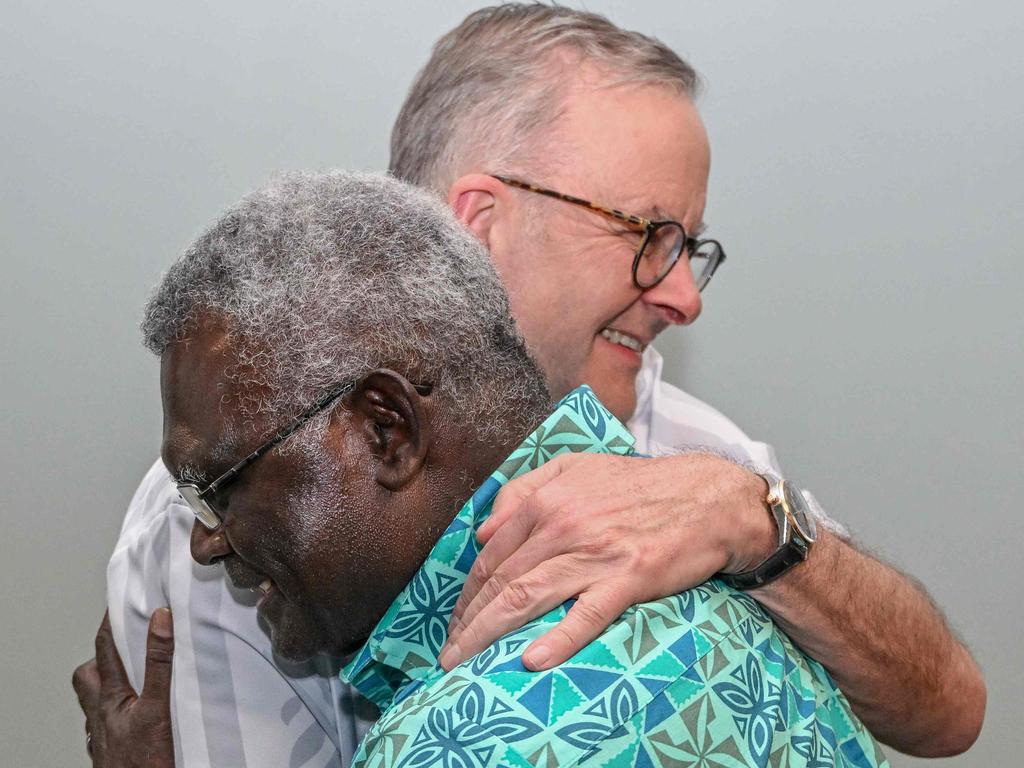Scott Morrison accuses Xi Jinping of steering China down a more autocratic path in Seoul speech
Scott Morrison has accused Xi Jinping of steering Beijing down an autocratic path, urging Indo-Pacific countries to stand their ground.

Scott Morrison has accused President Xi Jinping of steering Beijing down an autocratic path, saying if Indo-Pacific countries, including Australia, failed to stand their ground, further Chinese incursions into the region would be made.
While arguing that the world had not faced a more unstable environment since the 1930s, the former prime minister said conflict in the Indo-Pacific was not an inevitable outcome of the geopolitical tensions.
Speaking to the Asian Leadership Conference in Seoul on Thursday, Mr Morrison suggested the world had failed to act as China took over disputed territory in the South China Sea and such activity would continue unless the region stood firm.
In his first official public engagement since the May 21 election loss, Mr Morrison defended his tough stance on Chinese aggression during his time in office, claiming Australia’s position had never been to provoke Beijing, but to defend the sovereignty of Australia and other countries subjected to economic coercion.

Asked whether conflict in the region was inevitable, Mr Morrison said “No, I don’t. While I do think the world hasn’t seen such an unstable time since the 1930s in the Indo-Pacific, I don’t think it will end the same way,” he told the conference after his address.
“I think there are many things that have been learned since then; I think the rules-based inter-national order is critical to that.”
However, he said Mr Xi was responsible for taking the Chinese government down a more aggressive foreign policy path. “We have no quarrel with the Chinese ¬people. We have a deep relationship. There are over a million Australians of Chinese descent in Australia. We celebrate Chinese culture, we celebrate China’s massive economic success, we have played a huge role in that with our resources industry and other things,” he said.
“But there has been a very different tone under the most recent Chinese leadership, under President Xi. There has been a more autocratic tone to this leader of this government. That is not necessarily a statement about a Communist Party regime – there is a Communist Party regime in Vietnam and we enjoy a very good relations with Vietnam.

“(But) the current leadership of the Communist Party in China has taken a much more assertive tone and Australia’s response and my response was not seeking to provoke but to simply stand firm and to stand our ground. And I think this is very important because if you don’t, further incursions are taken
“We were talking before about what happened some years ago in the South China Sea as islands turned into airports. Nothing happened, so further ground was taken. So now we find ourselves in a situation which we would prefer wasn’t the case.
“So I think standing your ground on your values shouldn’t be seen as aggressive or in any way provocative. I think it is just seen as a country respecting itself and seeking to respect others.”
Mr Morrison agreed that Australia needed to engage with China and did not support a policy of isolation against Beijing or a containment approach to the country’s rise. “I believe we need to engage China,” he said, adding: “I suspect it will long remain our biggest trading partner.
“That is not the point; what has changed over the past five, six, seven years, is a more assertive China seeking to assert its presence and influence over sovereign countries in the region, including Australia.
“I would agree we must engage and not isolate, but that engagement comes with rules and global rules and the respect for those rules, respect for the sovereignty of each other’s country and not interfering in their democracy.”







To join the conversation, please log in. Don't have an account? Register
Join the conversation, you are commenting as Logout